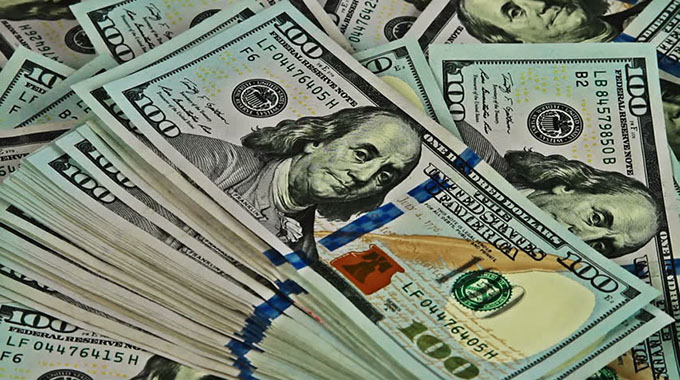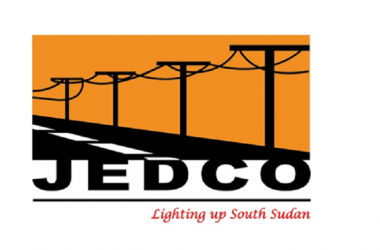By Ephraim Modi Duku Sokiri
An activist has urged the government to put proper mechanisms and plans on how to control foreign exchange and currency flow in the market.
In just a period of less than a decade, the United States (US) dollar gained strength against the country’s currency as South Sudanese Pound (SSP), falls to record low.
Executive Director of Institute for Social Policy and Research, Mr. James Boboya has stressed that monetary devaluation and widespread of dollars in the country, that citizens consider as a commodity is accredited to policies of Central Bank of South Sudan that encourages the sale of dollars in ‘black markets.’
“The practice by the Central Bank of South Sudan (BOSS) has led into the public recognizing the US dollar as a commodity. The US dollar in South Sudan, right now is seen as a commodity, yet money is not a commodity but a medium of exchange,” he argued.
Boboya said the black market survives by some fellows at the Central Bank who have framed positive policies to protect the black market.
“The black market exists because individuals from the Central Bank created bad policies within themselves and impacted it on the society which they branded themselves to become the black market,” he said.
He said the central bank started recognizing black markets as an alternative market entity and realign its policies in accordance with the trade.
Mr. Boboya also highlighted on the exercise of the Central Bank of auctioning hard currency which was to stabilize the foreign exchange market.
“There is a constant auctioning, every single day, 2, 5 or 6 million US Dollars which is good according to IMF because it is meant as medium or short-term stabilization of the market, but the idea was to stabilize the market to the exchange rate system of auctioning,” he added.
He said monetary stabilization is difficult in the country due to uncontrolled outflow hard currency.
“There’s a lot of buying of dollars from central bank and very little from the markets and that created the biggest problem, when it comes to money issues,” he said.
He stressed that the system would have helped to stabilize crisis; “it would help the communities to have access to services in a regulated price which is not happening and not sustainable.”
The policy analysts also lamented on the role of the Central Bank in meandering the economy through the commercial banks by imposing developmental monetary policies that benefits the citizens.
“The central bank regulates the economy by prudent measures through the commercial banks and in this case …it’s about the exchange rate,” said Boboya.
Boboya stressed that the Central Bank should have given money to productive sectors like agriculture, small processing industry, fishing industry and tourism to boost the economy.
He recommended that the government prioritizes agriculture and infrastructures like the roads, telecom networks and others that connect to the country’s capital for easy access of food that will reduce the use of dollars on foreign foods as imports.
“The government also needs to spend some resources on access to roads, even if not tarmac, they have to look at the fundamental areas that will produce a lot of food (the green areas of South Sudan), so that people can travel further from Juba and get food,” he added.
Boboya further observed that dollars are being taken out of the country as exports to foreign countries to access the necessary products.
He called on the government to have good policies that protect agriculture, supporting the farmers by not taxing their machines.
Agriculture in South Sudan according to the Kingdom of Netherlands, largely remains at subsistence level with average field sizes of two feddans/ acres per household as crop yields being very low: hardly one ton per feddan/ acre due to use of poor-quality seeds, tools and agronomic practices. The same applies to the livestock and fisheries sectors.
Smallholder farmers in South Sudan face competing issues including insecurity, lack of electricity, flooding, and poor infrastructure, especially a lack of passable roads, the civil war, desert locusts, the economic situation, and a long drought according to InfoNile.
On the other part, the Executive Director for Community Empowerment for Progress Organization (CEPO) Mr. Edmond Yakani expressed that the increase of dollar in the black market is hiking the commodity prices which stresses the lives of citizens.
“The abnormal increase of the dollars in the black markets which is also sipping the prices of commodities and services in the market which is becoming a hard situation to the normal citizens in the country, and this is due to the practice of the central bank’s auctioning of dollars to commercial banks and forex bureau,” he articulated.
Activist Yakani also said that the strategy of the Central Bank of South Sudan auctioning the dollars has set the minds of the citizens to value the dollars as form of a business, an ideal profitable idea which benefits few people.
“The auctioning of dollars by the Central Bank, the common citizens see it as ridiculous economic decision that is really causing nothing, except harm to the common citizens, and auctioning of dollars doesn’t benefit the citizens but benefit a class of certain individuals and institutions who are acting as economic mafias,” said Yakani.
“They (economic mafias) are intending to turn the dollar[s] into a commodity, dollar in Juba today is a commodity, no longer a currency, people want to buy and sell dollar as a commodity because they are earning profit out of it, and this is by the practice by the Central Bank.”
He appealed to the members of the transitional legislative assembly to raise a motion in the parliament on the above particular issue.
In February this year, the government of South Sudan through the Central Bank suspended the use of U.S. dollar and mandated that all transactions must be done using local currency, the South Sudanese Pound (SSP) in which to date has not taken effect.
At the time of release of South Sudanese pounds in 2011, the exchange rate was SSP 2.75 for $1. As of 12th May 2023, the commercially available exchange rate is SSP 950.38 to $1.




